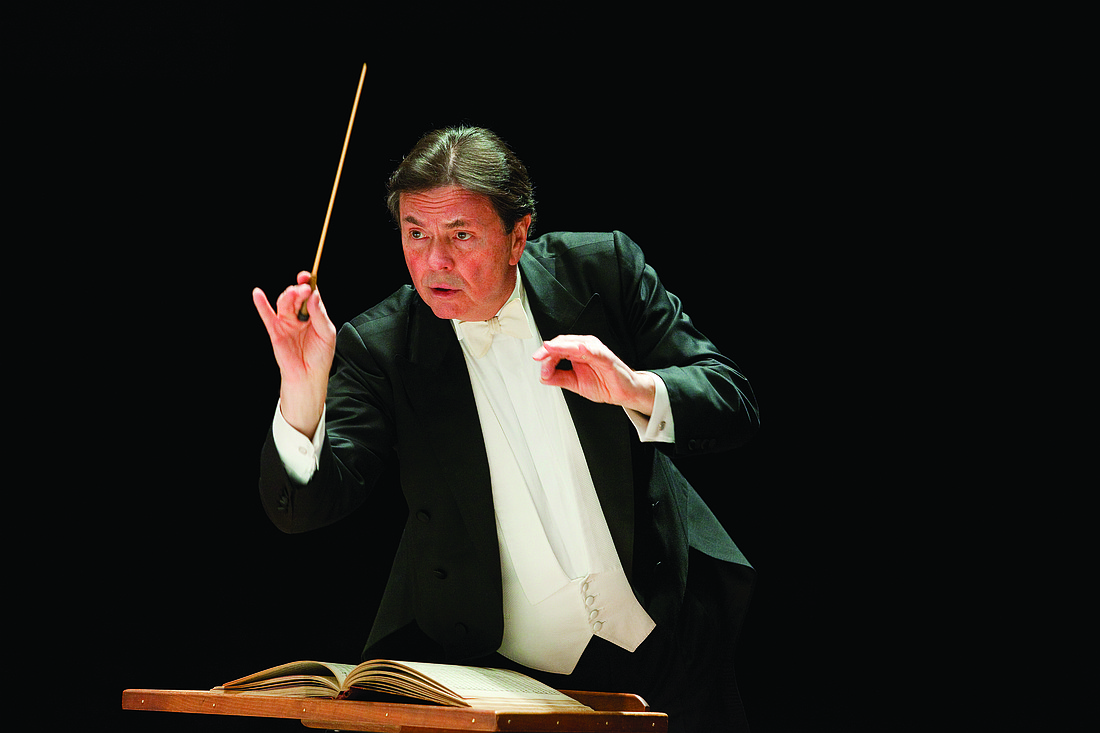- July 26, 2024
-
-
Loading

Loading

Sarasota Orchestra’s first Masterworks concert lifted off the Van Wezel launch pad and soared into space with three outstanding performances led by guest conductor Gerard Schwarz.
This season of the Sarasota Orchestra features the most stellar lineup of guest conductors the orchestra has ever had, and it’s quite possible that one could be selected as the next music director, succeeding Anu Tali, who during her six seasons with the orchestra brought it to great heights.
Schwarz, whose career has included orchestras in Los Angeles and New York and an impressive tenure with the Seattle Symphony, absolutely captivated the orchestra and audience in this week’s opening concerts. His beat and intentions with the music are clear, and his eye contact with the players is constant and amazing, all working together to communicate to the orchestra, which was with him at every moment.
After hearing several seasons of the orchestra’s mastering of the steely and angular sounds of the Russian and Scandinavian masters — the core of Tali’s repertoire — it was quite refreshing and comforting to hear them once again in the warm caressing sounds of the basic Western European classics and romanticism of Mozart, Strauss and Dvořák.
Opening with Richard Strauss’ epic tone poem "Don Juan," Schwarz and the orchestra at once let us know that we were indeed in for quite a ride. This staple of the romantic literature is often played by many orchestras, but this performance was a revelation in the sumptuous sound of the Sarasota strings — especially the cellos and basses — and the amazing accuracy with which they negotiated those very sticky passages and entrances.
Schwarz kept his Don moving at a good pace while still allowing the wonderful quiet and romantic moments to bloom properly. Concertmaster Dan Jordan’s solo was lovely; new principal oboist Jonathan Gentry made a striking impression with his tone and phrasing; and the horn section, led by co-principal Joshua Horne, rang forth with all the ardor and passion of the young Don Juan.
Pianist soloist Lise de la Salle might be slight of stature, but she is large of tone and musicality. Her approach to the Mozart Concerto No. 20 in D Minor was at one with the composer’s feelings in this more popular of his two minor key concertos. She gave a simply thrilling performance in never exaggerating but always keeping tempi, phrasing and dynamics in proper relation.
She chose to use cadenzas written by Beethoven, which provided a most interesting contrast and actually added to the weight of the piece. Her lyrical phrasing was spellbinding to the audience, as was her encore, a Sicilienne by Bach, played with a seamless legato.
And — a first for me — conductor Schwarz remained on stage, standing at the side of the orchestra and listening to her encore, a most gracious gesture.
Dvořák's Sixth Symphony in D Major, sometimes known as the “Czech Symphony,” which concluded the concert, is not as well known as his last three. The most famous of course is “New World,” Symphony No. 9. However, each of these two works seemed to draw material from their native sources.
The Symphony is a large and sprawling piece, yet it is internally very well organized by adhering to classical forms and certainly showing the influence of Brahms, Dvořák’s dear friend and mentor, as well as Beethoven and just a bit of Wagner, who was gaining an audience and recognition at the time.
Schwarz kept each movement in proper form and perspective, especially the beautifully phrased second movement with outstanding solos from wind principals Betsy Traba, flute; Bharat Chandra, clarinet; Jonathan Gentry, oboe; Fernando Traba, bassoon; and Joshua Horne, horn.
The third and fourth movements kept building the tension and musical excitement in culminating in the fugue of the coda and bringing everything to what was really a smashing finale.
The ensuing ovation for conductor and orchestra was rewarded with an encore, referred to by Schwarz as “a little piece by Brahms”: his Hungarian Dance No. 5 in G Minor.
Throughout the concert I kept thinking that the musicians of the Sarasota Orchestra constitute a great musical instrument with which any conductor should be privileged to make music. The skill, musicianship and versatility of these players continues to grow and mature, which then makes an already excellent orchestra great.
Combining this list of outstanding conductors with this great orchestra is sure to produce even more musical fireworks as the season progresses. I don’t know about you, but I’m eager to hear more and more.